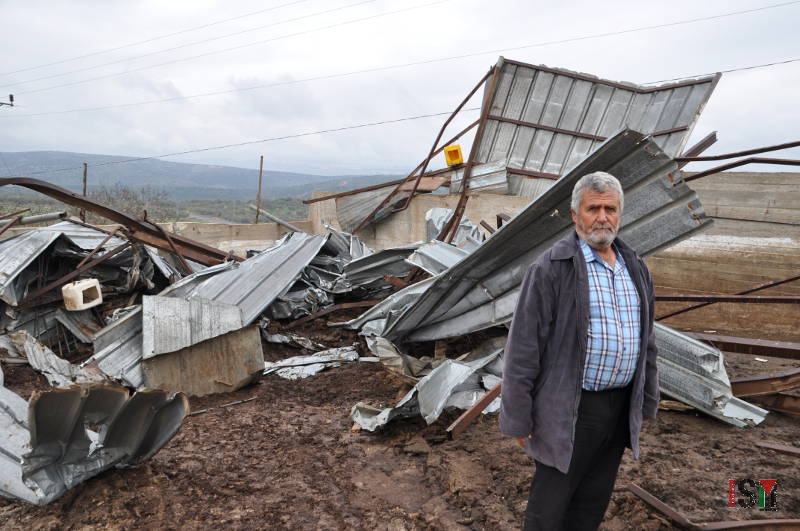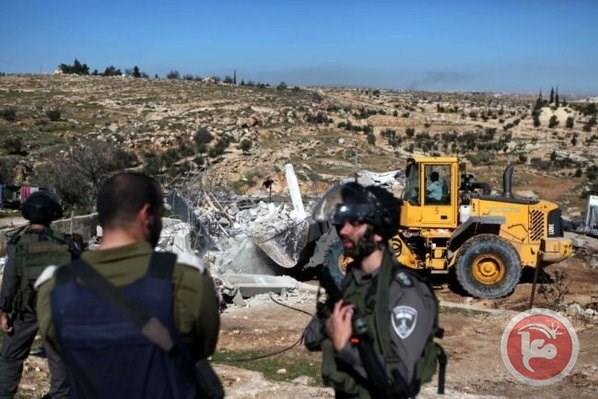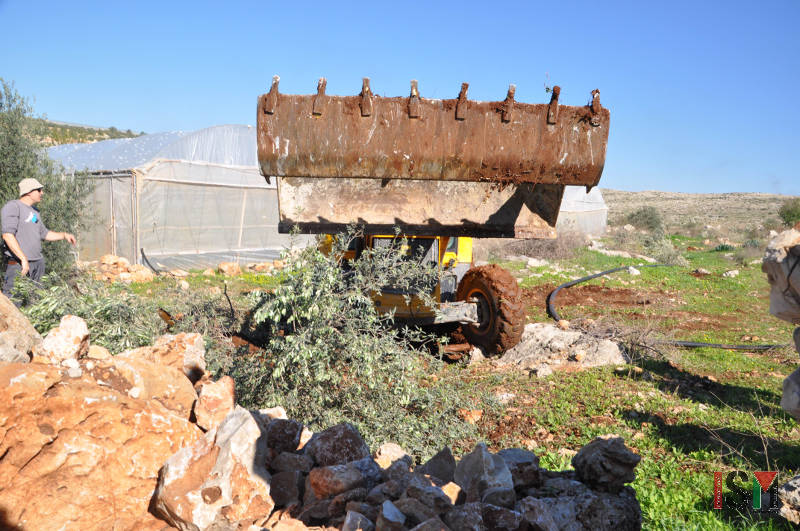Tag: Demolition
-
Israeli forces demolish Palestinian farmhouse, assault family members
24th January 2016 | International Solidarity Movement, Tulkarm Team | Jin Safoot, occupied Palestine In the early morning, 18th January, hundreds of Israeli soldiers entered the Jin Safoot village to demolish a farmhouse belonging to the Palestinian farmer Faed. The barn was serving as a shelter for his animals and he wasn’t allowed to remove…
-
Four shelters and one water tank destroyed in Tubas
January 16th 2016 | Jordan Valley Solidarity | Tubas, occupied Palestine At 6 am on 14th January 2016 the Israeli occupation army entered Tubas area, with twelve jeeps and two bulldozers, destroying four shelters and a water tank. In December 2015 the army gave the order for demolition of the shelters, obliging the owners…
-
Israeli forces uproot trees and destroy greenhouses in Kafa district
8th of December 2015 | International Solidarity Movement, Tulkarm Team | Kafa district, occupied Palestine On Tuesday, Israeli forces entered the village of Kafa in the outskirts of occupied Tulkarm. Within a few hours, they uprooted over 150 olive trees, 30 lemon trees and demolished four greenhouses from the land of the Esmail family. Even…



